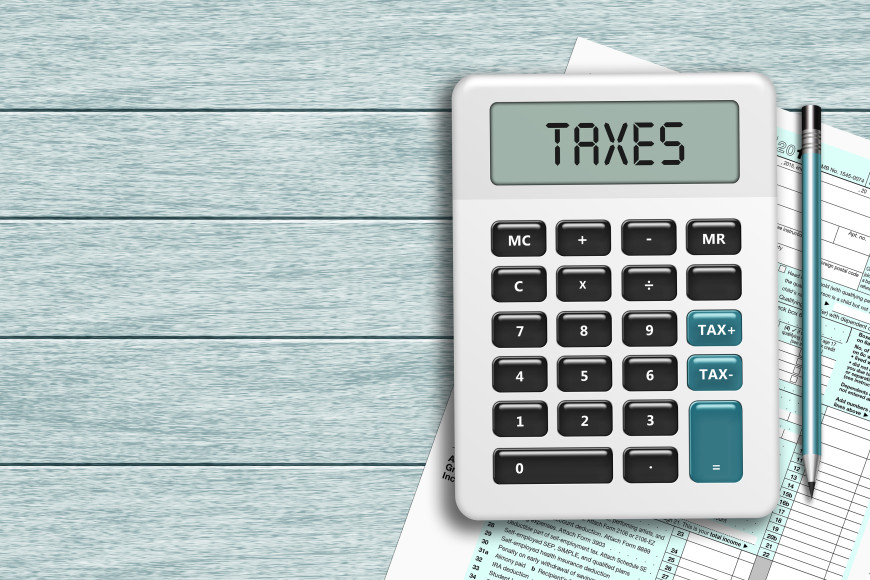Taxpayers across the nation have already received an array of tax forms. While many of these tax forms are familiar, many other forms are rather perplexing to individuals. For instance, many people probably understand why they received a W-2. That is, they received the form because they have income as an employee of a company or other business. Furthermore, they can probably break down exactly what each box on their W-2 means without the assistance of a CPA or tax software.
However, not every tax form is as straightforward as the W-2. In particular, the 1099 series of forms run the gamut from easily digestible to reasonably opaque. In light of the number of 1099 variations which include the 1099-INT, 1099-T-, 1099-A, 1099-C, and 1099-MISC it can be difficult to keep all of these similarly numbered tax forms straight. However, in this blog post we are going to cover some of the basics regarding this tax form. If you still have questions, we encourage you to give the Hoffman Tax Law Offices a call at 800-897-3915. Robert Hoffman is an experienced Los Angeles tax lawyer who can provide guidance on an array of issues. Furthermore, it is better to call and have a professional handle the matter than to end up facing an IRS audit because you failed to include the form.

What Is Reported on the 1099-INT I Received?
In general and at the most basic level a 1099-INT reports any interest payments you may have received during the past tax year. Ways that a taxpayer can experience interest income may include the taxpayer having certain bank accounts that produce interest. The taxpayer will receive a 1099-INT if the interest received was greater than $10. However, some banks may send the form even when interest income is less than this rather low threshold. Other scenarios that can give rise to receipt of a 1099-INT include:
- Receipt of dividends as a nominee
- Interest paid on delayed death benefits through a life insurance policy
- The taxpayer has claimed an interest exclusion series EE or I U.S. savings bonds issued after 1989
- The taxpayer has received interest from a bond
- The taxpayer is receiving interest from a seller-financed mortgage
- Receipt of noncash gifts for opening an account at a bank or financial institution
- Interest received on an income tax refund
One other scenario where the taxpayer may receive a 1099-INT involves holding or maintaining signature authority over a foreign financial account or a foreign trust. One essential item to note is that holding foreign accounts of any type may give rise to an offshore account disclosure requirement or requirements. Of particular note is the FATCA requirement since it is filed along with the annual income tax filing. But the taxpayer may also have an obligation to file FBAR per requirements set forth under the Bank Secrecy Act. The failure to file either of these disclosures can lead to significant penalties and the possibility of criminal prosecution should the failure to file appear willful. It is also important to note that the 1099-INT contains a FATCA filing requirement box. If this box is selected, it’s a good indication that you may need to report this income on your own FATCA filing. Furthermore, your income tax return will ask you if you have any foreign accounts. The failure to select the correct response may result in penalties since your tax return is filed under the penalty of perjury.

What Impact Will 1099-INT Income Have on My Income Tax Filing?
Typically, the receipt of interest income beyond a certain threshold will make a taxpayer ineligible to file their taxes on certain forms. In this case, a taxpayer who receives more than $1,500 in interest income is ineligible to file their tax return via IRS Form 1040EZ. THIs means that the taxpayer is required to file his or her taxes via Form 1040 or 1040A. Generally, receipt of significant amounts of interest income may indicate that the taxpayer’s finances are more complex than average and may be best handled by a tax professional. The tax professional can work to ensure that filing mistakes are not made on the income tax forms or regarding potential offshore filing obligations. Furthermore, he or she may even be able to reduce the amount you owe to the IRS without crossing the line into behavior would likely result in penalties or fines if you face an audit.
Rely on an Experienced Tax Attorney for Complex Tax Questions
If you are seeking guidance regarding your tax filings, a 1099-INT, or an array of 1099 forms received due to various contracting work, the Hoffman Law Offices can help. Robert Hoffman is an experienced tax lawyer and can help provide peace of mind for your tax filing. To schedule a free and confidential tax consultation call 800-897-3915 or contact the firm online.


